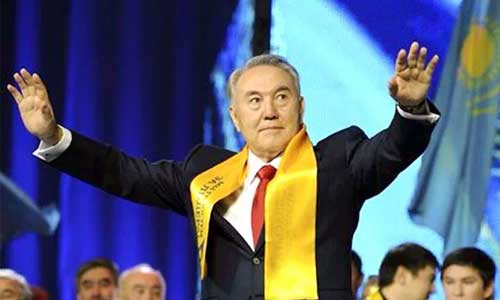Historically the Kazak region had been an area populated by nomadic tribes. In the 18th century, the Russia Empire made advances into the region, controlling the whole of Kazakhstan by the middle of the 19th century.
After the Russian revolution in 1917 and the creation of the Soviet Union, civil war erupted in the region with various attempts to bring the people in the region together. Finally in 1936, the Kazakh Soviet Socialist Republic was formed.
Following the fall of the Soviet Union in 1991, Kazakhstan adopted the constitutional law on the independence of the Republic of Kazakhstan on December 16, 1991. Kazakhstan was the last of the Soviet republics to declare independence, four days after Russia. As a result, Nursultan Nazarbayev, was elected the first, and to date, the only President of Kazakhstan.
Kazakhstan Economic Initiatives and lessons
Kazakhstan’s economy has gone through stages of decline, stagnation, and high economic growth after independence from the Soviet Union in 1990. The period from 1990 to 1997 was the period of negative economic growth, or at best stagnation (in 1995−1997, economic growth was close to zero) as the economic arrangements in the former planned economy broke down while new ones took shape. It was only from 1998 that Kazakhstan entered the phase of strong and sustained growth. Over the period 1998–2004, the population living below the poverty line in Kazakhstan declined significantly from 39 percent in 1998, to about 20 percent in 2004.
Given this incidence of poverty, the reduction of poverty is still important policy goal for Kazakhstan, which could also affect achievement of many other development goals. Reduction or elimination of poverty is essential for greater equality in society and for providing a dignified life to all citizens. Poverty reduction can also help in the advancement of education (especially higher education), which can lead to a more skilled workforce. It is often argued that poverty reduction can also contribute to improvements in maternal health, child mortality, control of infectious diseases, greater gender equality, etc. through the spread of education. These contributions, however, may have limrelevance in the case of Kazakhstan, which already has close to 95 percent secondary enrollment for both boys and girls of the corresponding age group.
Kazakhstan has gone through periods of negative, slow, and rapid economic growth and so provides an interesting case study of the role of economic growth in reducing poverty. It is useful to learn the role of various policies and events in promoting growth or reducing poverty in Kazakhstan as this deepens the understanding of the process and how it may work in other transition economies.
Kazakhstan as a successful role model for Foreign Diplomacy and Partnership
Kazakhstan’s partnership with the global community has also been fundamental to the smooth operation of the Northern Distribution Network to supply the International Security Assistance Force in Afghanistan. In 2015, Kazakhstan supported global efforts to counter terrorism and extremism by hosting in Astana the Regional Conference on Countering Violent Extremism (CVE) for Central and South Asia and participated in two CVE summits in Washington, D.C. and New York. At the U.N. General Assembly in 2015, President Nazarbayev urged world leaders to reinforce their anti-terrorism efforts and proposed establishing a UN-led world-wide network against terrorism.
Kazakhstan’s contribution to stronger international dialogue, inter-ethnic and inter-religious harmony
As a nation that has many ethnic groups and a multicultural identity, Kazakhstan has promoted its belief in the importance of inter-ethnic, inter-cultural, and inter-religious dialogue, understanding and non-discrimination. Since 2003, Kazakhstan has hosted the triennial Congress of Leaders of World and Traditional Religions, initiated by President Nazarbayev. The 5th Congress in June 2015 brought together leaders and high representatives of more than ten religions, as well as the UN Secretary General, the King of Jordan and the President of Finland. Kazakhstan wAas the main initiator of the proclamation by the United Nations of the International Decade for the Rapprochement of Cultures (2013-2022), aimed at promoting solidarity among all the peoples of the world, equality, inclusiveness, as well as cultural diversity. In 2010, Kazakhstan chaired the Organisation for Security and Cooperation in Europe (OSCE), becoming the first country from the CIS, Asia and the first predominantly Muslim country to do so. Under the motto of Four Ts – Trust, Tolerance, Transparency and Tradition – Kazakhstan was able to give a new impetus to the organization and to convene its first summit in 11 years in Astana, which reaffirmed the principles on which it is based, with particular emphasis on the vision of a common and indivisible Euro-Atlantic and Eurasian security community. During the chairmanship, Astana also hosted a high level conference on tolerance which provided a good basis for common work on promoting tolerance towards all in the OSCE participating states. In 2011-12 Kazakhstan headed the OIC and made significant efforts to creating better understanding between predominantly Muslim nations and the rest of the world, also helping to launch, among others, OIC Human Rights Commission. It was at Kazakhstan’s initiative and during its chairmanship that the Organization of Islamic Conference changed its name to the Organization of Islamic Cooperation to reflect its broader goals of promoting cooperation among its 57 member states. And it was due to Kazakhstan’s initiative and during its chairmanship that the OIC decided to establish the Islamic Organization for Food Security.
Kazakhstan Invaluable Supports to Afghanistan
Kazakhstan has already provided various forms of assistance to the UN member states in the amount of more than $100 million. Significant support has been given to Afghanistan, including the provision of 1,000 scholarships for Afghan students in Kazakhstan. Kazakhstan has also provided aid to Afghanistan in the form of food, education and financial assistance for infrastructure projects, intended for building schools, hospitals and the rebuilding of roads.
Home » Opinion » Kazakhstan: Strategic Leadership and Shining Future
Kazakhstan: Strategic Leadership and Shining Future
| Moh. Sakhi Rezaie

